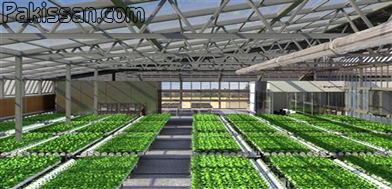How corporate farming impacts the
environment
By
Perry McCarney
 Corporate
farming is first and foremost about making a profit.
Corporations almost always use what is termed the
conventional agricultural methods, that have mostly
developed since World War II, on large tracts of consecutive
farmlands.
Corporate
farming is first and foremost about making a profit.
Corporations almost always use what is termed the
conventional agricultural methods, that have mostly
developed since World War II, on large tracts of consecutive
farmlands.
They generally target their land acquisitions to
agricultural regions where family farms are economically
stressed due to temporary downturns in the value of the
local crop. Utilizing the financial straits being
experienced by the current owners, they can facilitate their
own purchase of the land at relatively cheap prices.
This only occurs when the farmland still has prime growing
potential or immediately realizable real estate value,
because the corporates' profit-based motivation is attuned
to the financial quarter or year.
The financial bottom line is
the controlling influence on their behavior. The best
farmland to purchase is that which is currently still
capable of high production yields through conventional
farming methods and is also sufficiently close to current
urban centers so as to offer substantial profits through
sub-division as suburban residential areas or lifestyle
blocks, in the future.
Recognition of the
detrimental environmental impacts of conventional farming
are ignored because it is not the intention of the corporate
body to continue farming or even owning the land very far
into the future.
Conventional agriculture is
experiencing either reduced production or increased costs,
often both. Farming monocultures, such as wheat fields,
repeatedly on the same land results in the loss of topsoil,
soil vitality, groundwater purity and beneficial microbial
and insect life; weakening the crop plants and making them
vulnerable to an increasing numbers of parasites and
pathogens (disease causing microbes).
An ever increasing
amount of fertilizer and pesticides is required, as well as
increased energy usage for tilling to aerate the soils and
increasing irrigation costs as suitable water becomes in
harder and harder to find or access.
While conventional methods may enable large increases in
production yield on still viable farmland initially, and
thus high profits, these practices fail to consider the
future.
While conventional methods may enable large increases in
production yield on still viable farmland initially, and
thus high profits, these practices fail to consider the
future. Corporate ownership can ignore these factors because
they function on a present rather than future conceptual
basis.
Suck as much profit as possible from the immediate
situation, then offload any land they can't sell as
high-profit residential property as a tax write-off, a
win-win situation from their perspective.
The steady increase in corporate farming using
conventional methods in the last few decades has increased
the destabilization of rural communities as well as speeding
up the detrimental effects on both the farmland ecology and
neighboring natural environments.
Cost cutting efforts have frequently targeted farm
workers; financial recompense for work performed has
degraded significantly in comparison to other areas of human
endeavor. This not only decreases the standards of living of
the farmworkers, but has a flow on effect impacting the
economic viability of small, rural towns.
Corporations have entered the agricultural field in the
last few decades to make money. They readily accept seeds,
whether genetically modified or not, from other divisions of
the corporate body to use on their farmlands, reducing the
biodiversity of crop plants.
This reduction in commercially grown varieties of some
crop species makes them more susceptible to extinction from
plant diseases, accidentally spread by human agency from the
small local areas they have previously been constrained to.
Corporate farming has a positive impact on the accounts
of the corporate body, but it has a negative impact on the
future viability of the farmlands they own, the rural
communities in the areas they farm, and the environmental
health of the planet that supports us all.
They get away with it because they offer food at a
slightly cheaper retail price, use their size to constrain
sustainable competitors, and their economic power to
influence and lobby the political powers that be.
February, 2013
Source:
Helium.com